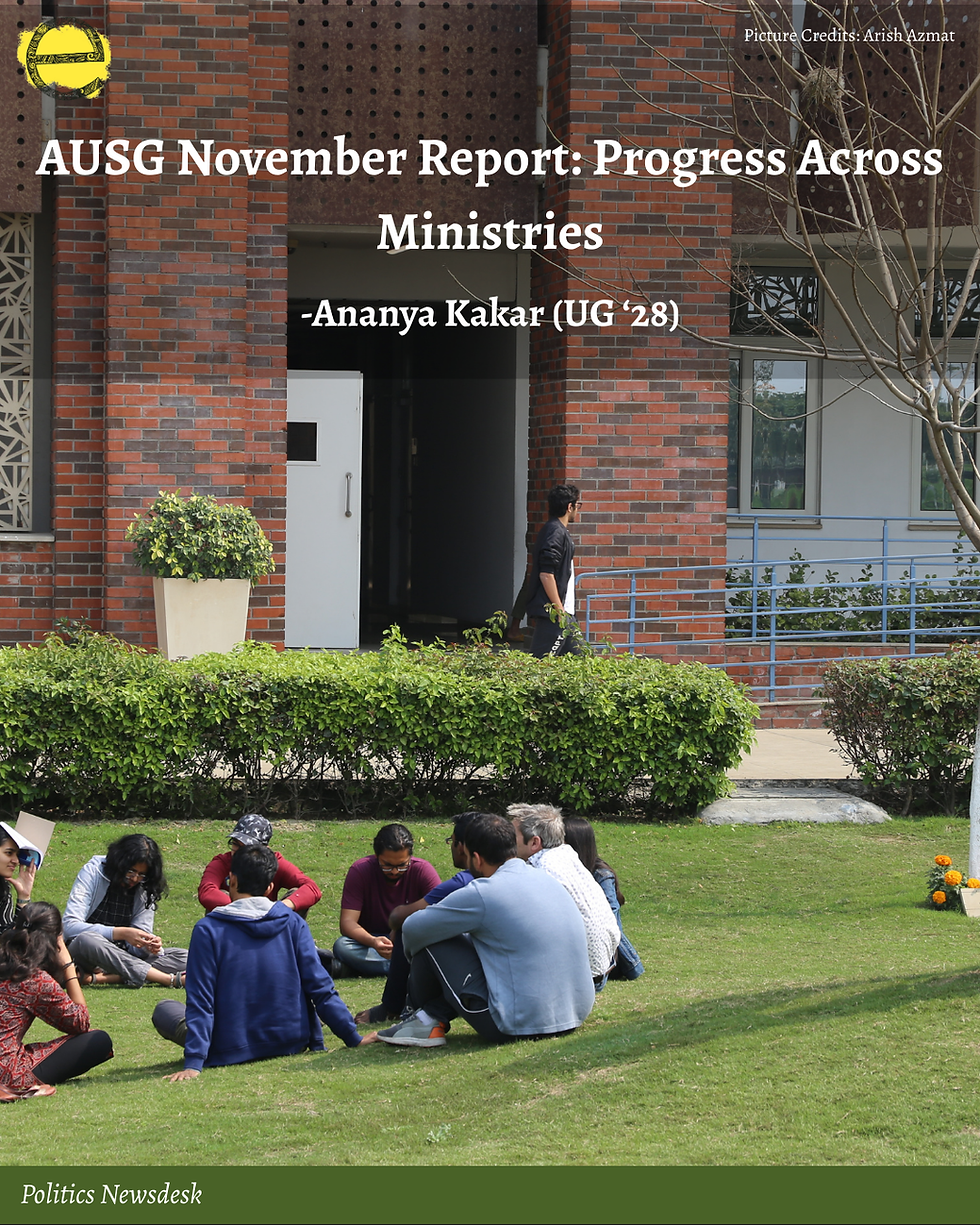Clubs and Societies : A Freshman's Perspective
- The Edict
- Dec 3, 2022
- 3 min read
By Kunal Singh, UG25 and Vishnu Prakash, UG24
College is life in itself. A time to rethink, to restart, and to receive as much new knowledge as one can. This knowledge is in no way limited to the diametrically different academics we encounter as compared to that in school, nor to the diverse set of people we meet, but it is also embodied in the opportunities we get to foster interests outside of academics, and build important skill sets and communities through clubs and societies.
As freshers entering a liberal arts University, we function under the ideal that opportunities breed interest, and that access to a vast variety of clubs and societies would allow us to pursue hobbies and interests. But what does one do with an abundance of opportunities?An atmosphere so saturated with events, opportunities, and new ideas, that even 24 hours seems too less. Currently, Ashoka has 39 clubs spreading across 12 categories as per the official website and there are numerous societies both for academics and co-curricular activities. This number is ever-evolving, with new clubs and societies seemingly bombarding our inboxes everyday with announcements for inductions. For freshmen like me, a combination of excitement and FOMO drives the hectic process of applying to as many clubs and societies as possible. Equally jarring as the hectic rush to apply to every club and attend every event, is the induction processes of the clubs themselves. Gone are the days from school, where clubs were sites of encouraging participation and goodwill. At Ashoka University, the leading Liberal Arts College in India, student clubs are run like companies, with induction processes akin almost to Placement Cycles. The Ashokan Club Induction Experience involves Interviews, Resumes, Work Experience, Form-filling, Future Visions, and a vast array of such terms otherwise reserved for the hiring process of a Fortune 500 Company. At times I wonder if getting into Ashoka is easier than getting into a club at Ashoka. The obsession with Ashokan Clubs asking for proper, and professional skill sets while inducting, or making their selection highly selective kills the desires of many to be a part of a shared space of learning. Should not ‘Being Interested’ be the only criteria that should suffice the induction process?
Rather than focusing on what clubs and societies we could be a part of, consider even how our interest to follow something is at stake in the midst of these diverse options. Remember the start of the first semester where everything felt so new, where your aspirations were at their peak and your ideas were waiting to blossom into action? And then, somehow, out of nowhere, you have a pile of emails unread in your inbox. Somewhere, lost in the maelstrom of a million mails, are the deadlines of inductions of the clubs and societies. Like me, you too would have learned the art and science of putting labels on emails to keep track of them. And yet, it is only when the forms are closed that you realise the number of deadlines you missed.
How can we not miss the deadlines! Whether clubs or events, a larger part of the issue is the timetables we have. The classes and discussion sessions, randomly scheduled, overlap the timings of not only the events we would love to join but also the lunch we skip in the mess. The adjustment one has to make from school to the seemingly perpetual work that a college student has, forces one to make a choice between the exciting club event, and the necessary piece of work. Do I work on my assignment due at 11.59pm or attend the screenings in AC03? Write this essay, or attend that talk?
Furthermore, the number of events happening simultaneously, all of them appearing so interesting that even a Political Science major would want to attend a Mathematics Colloquium. The saturation of club events and the energy one requires to resolve dilemmas such as the above leads on to lose the initial, perhaps naive, interest one has.
The aftermath becomes predictable. Too many clubs and societies, all run like professional companies, all saturating our inboxes with event after event, in an atmosphere where we’re bogged down with work, leading to fewer people showing up at their events. They have more responsibilities among limited members. And when their event does not meet the expectations vis-a-vis turnout, it cannot be of surprise to anyone. From a once-enthusiastic freshman’s point of view, the problem is clear : Too many events, too many posters, too many mails, too many choices, too much to read, that we choose not to heed.







Comments